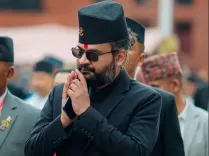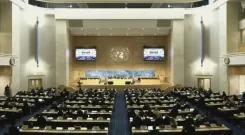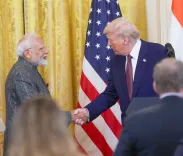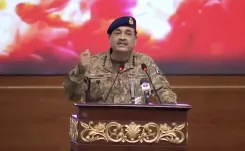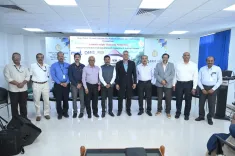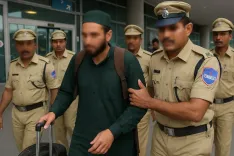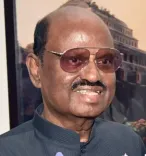Is Turkey's Erdogan Effectively Silencing the Opposition?
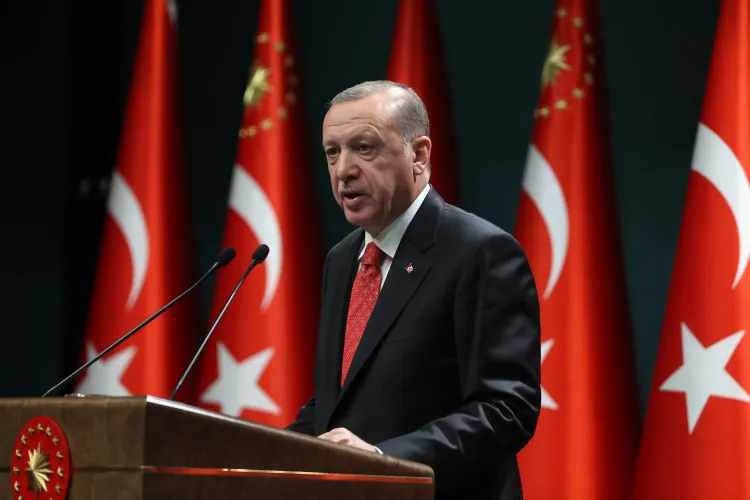
Synopsis
Key Takeaways
- Intensifying political repression against opposition forces in Turkey.
- Economic instability is leading to public discontent and protests.
- Significant arrests of opposition mayors are undermining local governance.
- Nationalism is being used by the government to rally support.
- Public support for the opposition is growing, indicating potential changes ahead.
Ankara: The political scene in Turkey during 2025 has been characterized by escalating tensions and deepening divisions. The domestic political climate has seen the detention of opposition mayors and influential figures under the guise of anti-corruption probes, coupled with restrictions on social media, aggressive crackdowns, and efforts to coerce opposition members into aligning with the ruling party. Municipalities governed by the opposition Republican People's Party (CHP), known for its Kemalist and social democratic stance, have endured significant waves of arrests this year.
On Monday, a large assembly of CHP leaders and members, regarded as the primary adversaries of President Recep Tayyip Erdogan's Justice and Development Party (AKP), faced off against local police, resulting in numerous arrests outside their party headquarters in Istanbul.
A Turkish court on September 2 removed Ozgur Celik, the Istanbul provincial head of CHP, and appointed former Deputy Chair Gursel Tekin as the interim head. CHP's national leader, Ozgur Ozel, dismissed this ruling as illegitimate, asserting that Tekin had been expelled from the party. Celik affirmed he would not relinquish his position. The Turkish government has denied allegations of political meddling, asserting the judiciary's independence.
Following the arrest of Istanbul Mayor Ekrem Imamoglu in March, President Erdogan and the ruling AKP have intensified their crackdown on opposition groups. The recent arrest of Beyoglu Mayor Inan Guney on August 15 marks the latest episode in a series of government actions against CHP-run municipalities. Notably, Guney was known for his non-controversial demeanor and maintained a low profile as a Mayor. The total number of CHP mayors arrested in 2025 has reached 17, with all currently imprisoned or under house arrest.
In addition to arrests, several opposition mayors have defected to the ruling AKP, with nine—including Aydin Mayor Ozlem Cercioglu—switching allegiance on August 14. In total, 56 mayors from opposition factions and independent backgrounds have joined the AKP since the last elections. This political purge has considerably weakened the opposition, stripping away vital local leadership, disrupting municipal governance in CHP strongholds, hampering cohesion and limiting their mobilization efforts ahead of upcoming elections. Despite the aggressive efforts to stifle dissent, protests continue with weekly rallies and strikes, underscoring the growing divisions as potential early elections loom.
Adding to the political turmoil, Turkey has grappled with severe economic issues over the past three years, with persistently high inflation contributing to widespread discontent. In 2023, the annual inflation rate averaged 54 percent, largely driven by Erdogan's unorthodox monetary policies, which peaked at 59 percent in 2024. However, in 2025, inflation has shown signs of moderation, decreasing from 42 percent in January to 34 percent in July.
The rising costs of food and housing have significantly impacted the average citizen. Following Imamoglu's arrest in March, the Turkish Lira depreciated by 16.3 percent, triggering market instability that led the Central Bank of Turkey to intervene with USD $25 billion from its reserves. Broader concerns, such as high unemployment, judicial corruption, and a 'Not Free' rating from Freedom House, have intensified calls for economic reform.
Meanwhile, the Erdogan government has sought to ignite nationalistic sentiments and emphasize foreign policy achievements to distract from both economic and political challenges. By portraying Turkey as an ascending global player through pro-government media, the Erdogan administration aims to rally national pride while diverting attention from protests and economic difficulties.
Turkey has achieved some success in foreign policy, notably positioning itself as a crucial player in the region following the collapse of the Assad regime in Syria. Recent diplomatic efforts with Syria include a military cooperation agreement signed on August 14, under which Turkey will provide weapon systems, equipment, and logistical support to the new Syrian government.
Turkey's defense collaborations with Pakistan, Bangladesh, and the Maldives, framed as partnerships with Muslim-majority nations, resonate with the public. A notable deal with Islamabad, worth USD $900 million, was signed in July to supply advanced Bayraktar TB2 and Akinci drones along with over 700 loitering munitions. Turkey's decision to close airspace, ban ships, and sever ties with Israel over actions in Gaza positions the nation as a proponent of shared values. The 'Terror-Free Turkey' campaign, which has led to arms surrender by some members of the Kurdistan Workers Party (PKK), has also garnered public support.
A newly established multi-party 'National Solidarity Brotherhood and Democracy Commission,' led by Speaker of the Grand National Assembly, Numan Kurtulmus, aims to address legal and constitutional challenges surrounding the Kurdish issue. However, this initiative may simply serve as a delaying tactic as elections approach, allowing Erdogan to position himself as the 'protector of national unity.'
Additionally, the ruling AKP has initiated 'Century of Turkey Meetings' to galvanize public backing for upcoming electoral milestones, reaffirming the AKP's pivotal role, fostering national unity, and revitalizing electoral momentum. This campaign highlights progress across essential sectors such as healthcare, infrastructure, energy, education, diplomacy, and technology. The shifting policy focus indicates a recalibration from a security-driven strategy to one centered on reconciliation and development-oriented governance.
By launching corruption cases against opposition leaders, the AKP aims to convince the public that even CHP officials are dissatisfied with rampant corruption. Recent polling suggests a shifting political landscape, with the opposition CHP leading at 33.3 percent support, compared to the AKP's 30.2 percent. Average results from 16 polls in July indicated that 67 percent of Turks wish to see the end of the Erdogan era, with increasing support for jailed Mayor Imamoglu.
While the Erdogan administration has fostered nationalistic pride, domestic instability in Turkey and broader changes in the international context persist, posing potential challenges for Erdogan's plans to secure re-election or amend the constitution to prolong his rule. Erdogan has been accused of attempting to undermine opposition momentum ahead of elections.
(The author is an expert on South Asia and Eurasia and was formerly associated with the Manohar Parrikar Institute for Defence Studies and Analyses. The views expressed are personal.)

